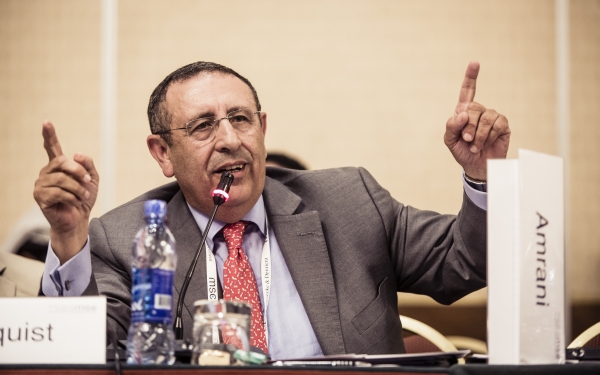
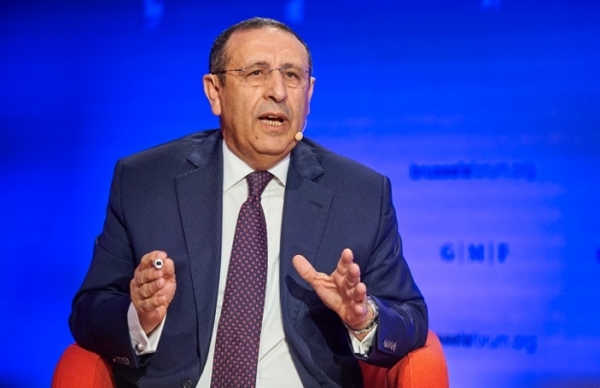
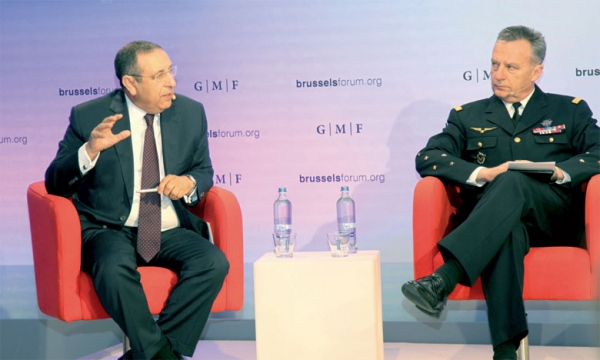
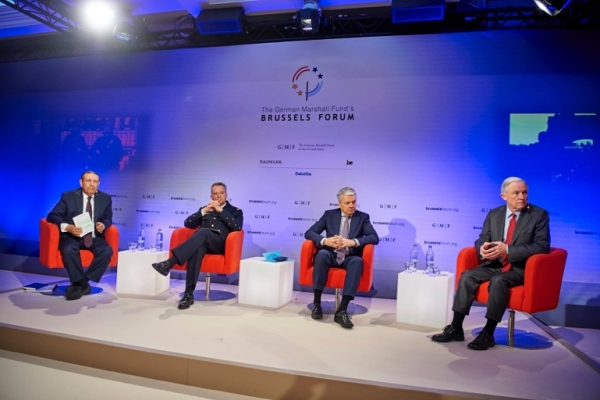
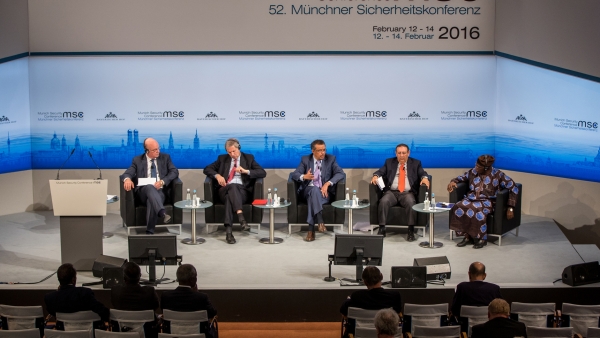
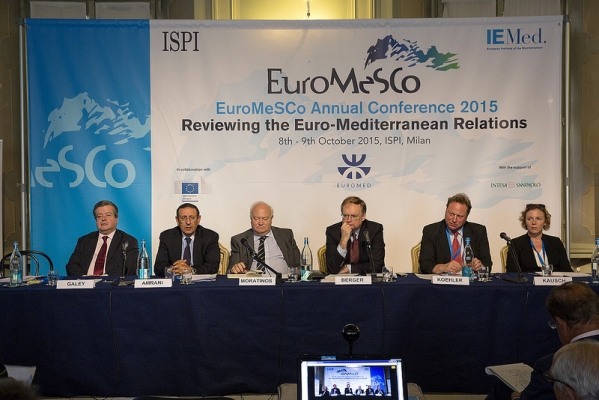
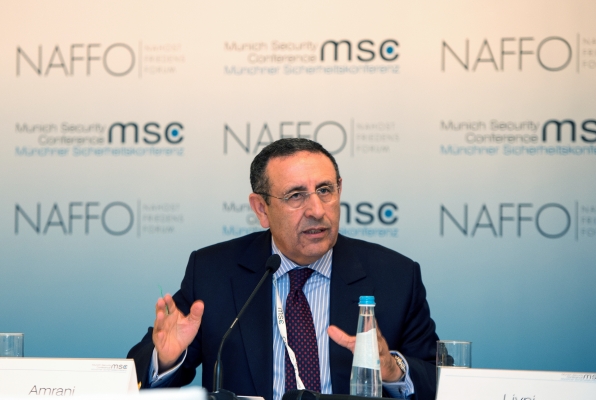
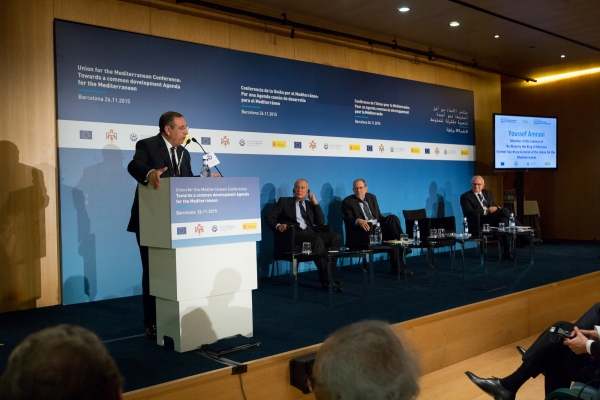
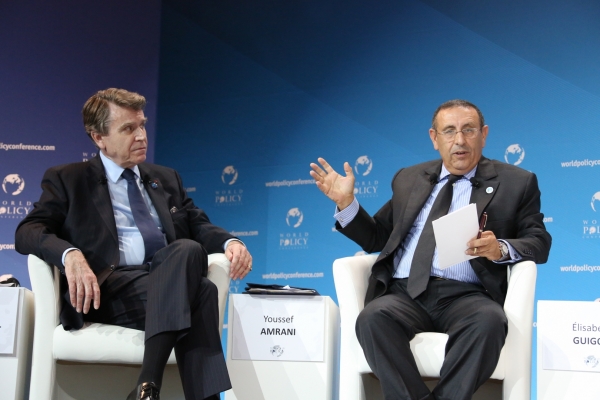

Agenda item » Threats to international peace and security caused by terrorist acts »
Thematic high level meeting on “Strengthening international cooperation in the implementation of counter-terrorism obligations”
4 May 2012
Mr. President,
I would like to express our deep appreciation to the Republic of Azerbaijan for convening this important and timely meeting. This initiative, Mr. President, demonstrates the importance that your Country attaches to strengthening international cooperation against terrorism.
I would also like to thank the Secretary-General for his introductory statement and commend his personal commitment to strengthen UN leadership in combatting terrorism. The Secretary-General Symposium on International Counter-Terrorism Cooperation, held in September 2011, produced concrete recommendations that were a welcome development.
We are now looking forward to engage constructively in the upcoming discussions on new proposals seeking to further enhance coherence and effectiveness of UN counter-terrorism efforts, including the creation of a UN counter-terrorism Coordinator.
Our debate today is taking place in an international context marked by clear progress in many counter terrorism fields. We are encouraged by the results accomplished so far. However, terrorist acts continue to take place and an important number of terrorist plots are defeated each year in various regions. This provides clear evidence that the terrorist threat persists and our common goal to eradicate this menace remains unfulfilled.
Despite all our efforts, terrorism remains a pressing challenge and one of the most serious threats to international peace and security. The international efforts to combat terrorism are essential and they must continue with the same determination and commitment.
In this regard, the United Nations remains the appropriate and legitimate framework for Member States to adopt multilateral responses to terrorism.
The Security Council, within its mandate of maintaining international peace and security, has taken important steps against terrorism and continues to strengthen the work of its counter-terrorism bodies through a number of additional resolutions.
The United Nations Global Counter-Terrorism Strategy, adopted by the General Assembly in 2006, represents the most comprehensive and effective decision taken by the International Community to eliminate this dangerous threat and improve United Nations action to this end. We are looking forward to its third review that will provide an additional opportunity to consider an improved and more effective translation of its four pillars into concrete actions and measures.
The role of the United Nations Counter-Terrorism Implementation Task Force (CTITF) in implementing the Strategy must be further strengthened. The United Nations Center on Counter-Terrorism, initiated by the Kingdom of Saudi Arabia and established during the current session of the General Assembly constitutes an important mechanism allowing the Task Force to further develop its capacity-building activities and enhance international coordination in the field of counterterrorism. We are committed to work together with other members of the Center’s Advisory Board to achieve its important objectives.
Mr. President,
Morocco fully shares the resolute determination of the International Community to stand firm and united in the fight against terrorism. On this basis, Morocco has established a comprehensive and multidimensional counter-terrorism approach that converges with the United Nations Strategy and complies with the Charter, as well as other relevant United Nations’ resolutions and international legal instruments to which Morocco is party.
This proactive Moroccan approach was successfully translated into firm and preventive law-enforcement measures, as well as national initiatives aiming to address the numerous social, economic and cultural factors at the root of violent and extremist ideologies.
Our successful approach is based on a number of factors. The total rejection of terrorism in all its forms and manifestations by all Moroccan citizens has been of vital importance. Morocco’s longstanding commitment to the values of tolerance and peaceful coexistence has remained strong and equally played a key role within our society. Above all, it is Morocco’s firm determination to pursue its irreversible democratic path – paved by genuine reforms with human development as a driving force – that provided the best protection against the spread of extremist and violent ideologies.
Yet no matter how successful, actions pursued by individual States cannot manage to face – alone -the scope, diversity and continuous sophistication of the terrorist threat. Despite all our efforts, terrorism remains a real cross-border threat that can strike any nation regardless of its religion, culture, or level of development. For this reason, nothing can replace an effective and coordinated international commitment to cooperate against terrorism.
Moreover, while unquestionably important, individual actions pursued by States in the fight against terrorism cannot compensate a lack of collective action and commitment at regional and sub-regional levels. To be effective, national counter terrorism strategies require solid, systematic and unfailing regional and sub-regional cooperation. Such cooperation provides the crucial link between national and international efforts. It is especially necessary in regions that are declared targets of terrorist and transnational criminal groups.
Mr. President,
Morocco has continuously expressed its deep concern over the spread of terrorist activities in its neighboring sub-regions, namely West Africa and the Sahel region, but also in the Gulf of Guinea and in the Horn of Africa.
Our Continent has, in recent years, seen an increase in the frequency but also in the degree of sophistication of violent acts committed by terrorist networks. Often striking in areas already faced with many socio-economic, environmental and food security challenges, as well as prolonged and unresolved conflicts, these terror activities have dramatically increased the number of innocent victims, undermined the sovereignty and territorial integrity of States and threatened regional stability as a whole.
Recent developments have also confirmed that there is an established interconnection between terrorist groups, separatist movements and criminal networks involved in arms, drugs and human trafficking, as well as piracy and kidnapping activities. This interconnection has allowed terrorist networks to tap into the financial resources stemming from illicit cross border flows and consequently, to enhance their operational capabilities and even expand their control, in some instances, over territories of sovereign States.
This Council has repeatedly expressed its concern and condemnation of the presence and attacks perpetrated by terrorist groups in these regions. Today, there is an urgent need to establish a sustainable framework for dialogue, cooperation and solidarity – one that encompasses all States concerned by the security and stability in this region in order to address in a holistic manner the political, security and human development aspects in this region. Narrow political calculations must give way to joint responsibility and constructive partnership, particularly in the case of West Africa and the Sahel.
Consistent with its longstanding commitment to peace and security in Africa, Morocco has been an active partner in assisting other African countries in enhancing their individual and collective capacities to face terrorist groups, as well as the numerous transnational organized crime networks they are affiliated to. In this regard, the Conference of Justice Ministers of Francophone African Countries for the implementation of universal instruments against terrorism and the Ministerial Conference of African-Atlantic States represent key initiatives to which Morocco actively contributes. Morocco will also host the second edition of the Regional Ministerial Conference on border security, following the first meeting held in Tripoli, last March, which regroups a number of states from North Africa and the Sahel region.
In line with this same commitment, Morocco will spare no effort in continuing to support all initiatives aiming at building genuine partnership and mutual confidence conducive to effective regional and international cooperation. Within these parameters, we are equally committed to contribute to the activities of the Global Counter-terrorism Forum in a manner that complements and reinforces existing multilateral counter terrorism efforts, in particular those conducted by the United Nations.
In conclusion, Mr. President,
We are deeply convinced that the United Nations should remain the universal framework to reinforce our clear and strong message where, as an International Community, we stand united to express our rejection of all violent ideologies and to work together to promote dialogue among our civilizations, as well as prevent the stigmatization and indiscriminate targeting of particular religious groups in the ongoing fight against terrorism.